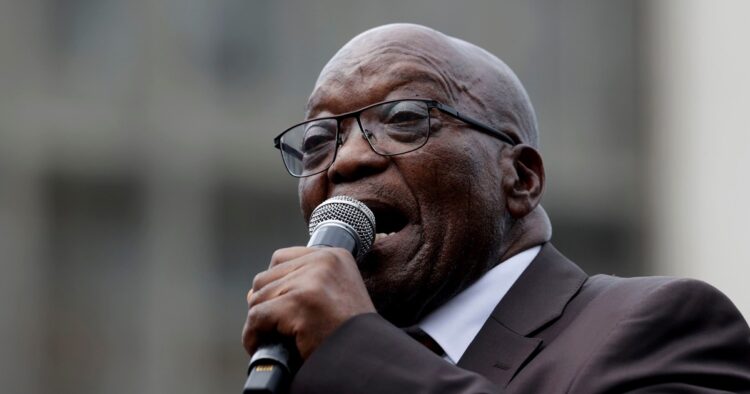South Africa’s electoral officials made a significant announcement on Thursday, stating that former president Jacob Zuma would be excluded from participating in the upcoming May elections. This decision has heightened tensions in the lead-up to the polls.
The country is gearing up for general elections on May 29, which are anticipated to be the most fiercely contested since the establishment of democracy in 1994. The ruling African National Congress (ANC) is facing the prospect of falling below the critical 50 percent mark for the first time since the end of apartheid.
Amidst a struggling economy and allegations of corruption and mismanagement, the ANC is experiencing a decline in support. Zuma, who was ousted from office in 2018 amidst corruption allegations, still holds considerable political influence and has been actively campaigning for the opposition uMkhonto we Sizwe (MK) party.
However, the electoral commission has upheld objections to Zuma’s candidacy without providing specific details. The decision is subject to appeal until April 2, and Zuma’s party, MK, has expressed intentions to challenge it.
Furthermore, the ANC has filed a court application to prevent MK from using its name, alleging intellectual property theft. The party claims that MK’s name and logo resemble those of the ANC’s disbanded apartheid-era military wing, potentially misleading voters. A court ruling on this matter is imminent.
The upcoming general election is expected to be tense, with the possibility of the ANC being forced to form a coalition government if it fails to secure a majority. Recent opinion polls indicate the ANC’s support at just over 40 percent, with the Democratic Alliance as the main opposition polling around 27 percent and MK at 13 percent.
Zuma’s exclusion from the elections stems from constitutional provisions barring individuals convicted of offenses punishable by more than 12 months in prison from standing for election. Zuma was sentenced to 15 months in jail in 2021 for contempt of court, which led to widespread protests and violence across the country.
Although Zuma’s release was initially granted on medical parole, subsequent legal proceedings have cast uncertainty over his status. Despite his popularity among the Zulu population, Zuma’s legal troubles have complicated his political ambitions.
The final electoral lists are expected to be published soon, with the electoral commission currently reviewing 82 appeals related to candidates nominated by various political parties. Zuma’s announcement of campaigning for MK dealt a blow to the ANC, further intensifying the political landscape ahead of the elections.
In response to these developments, the head of South Africa’s largest opposition party, John Steenhuisen of the Democratic Alliance, has not ruled out the possibility of forming a coalition government with the ANC post-election.

















Comments